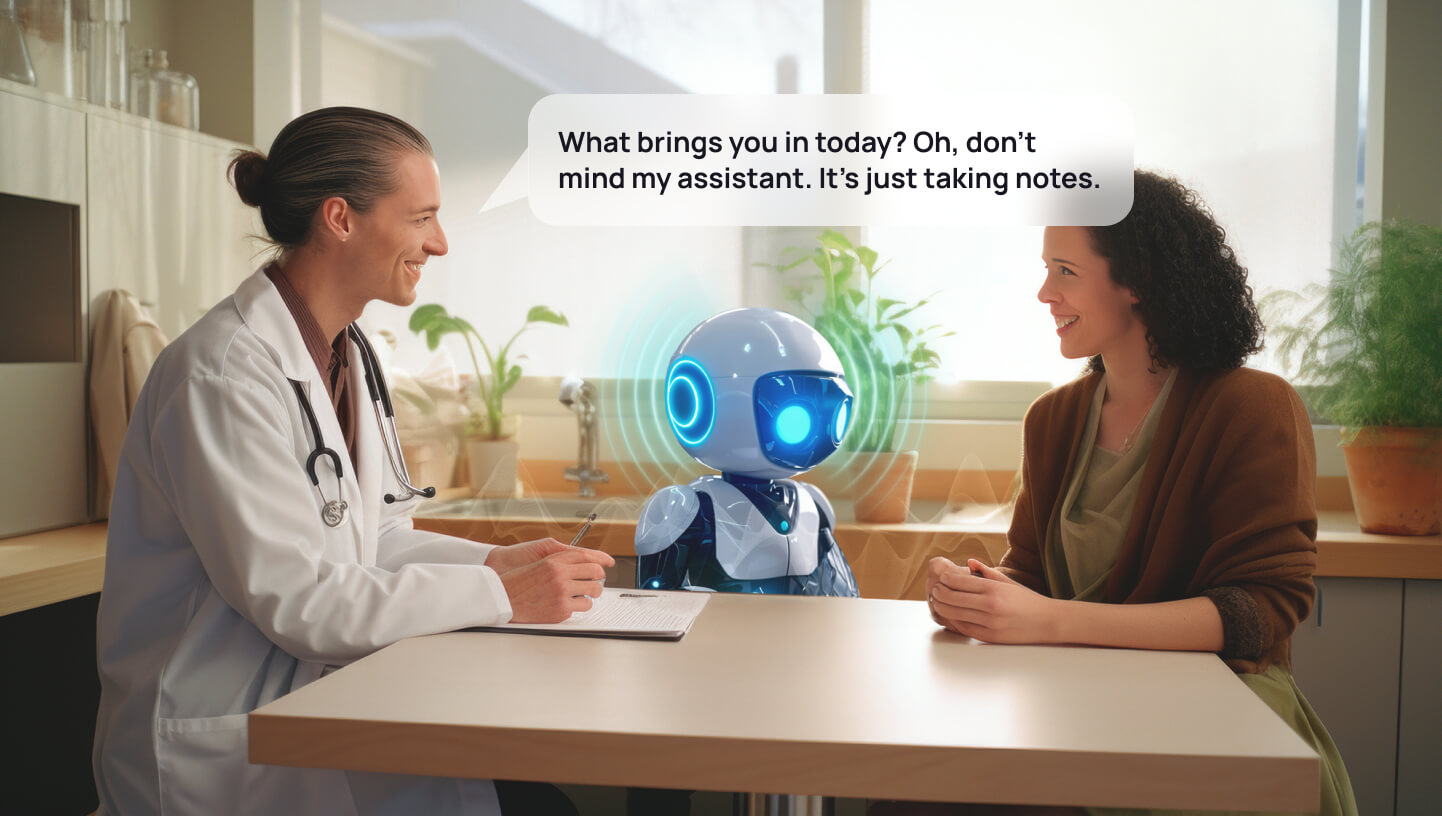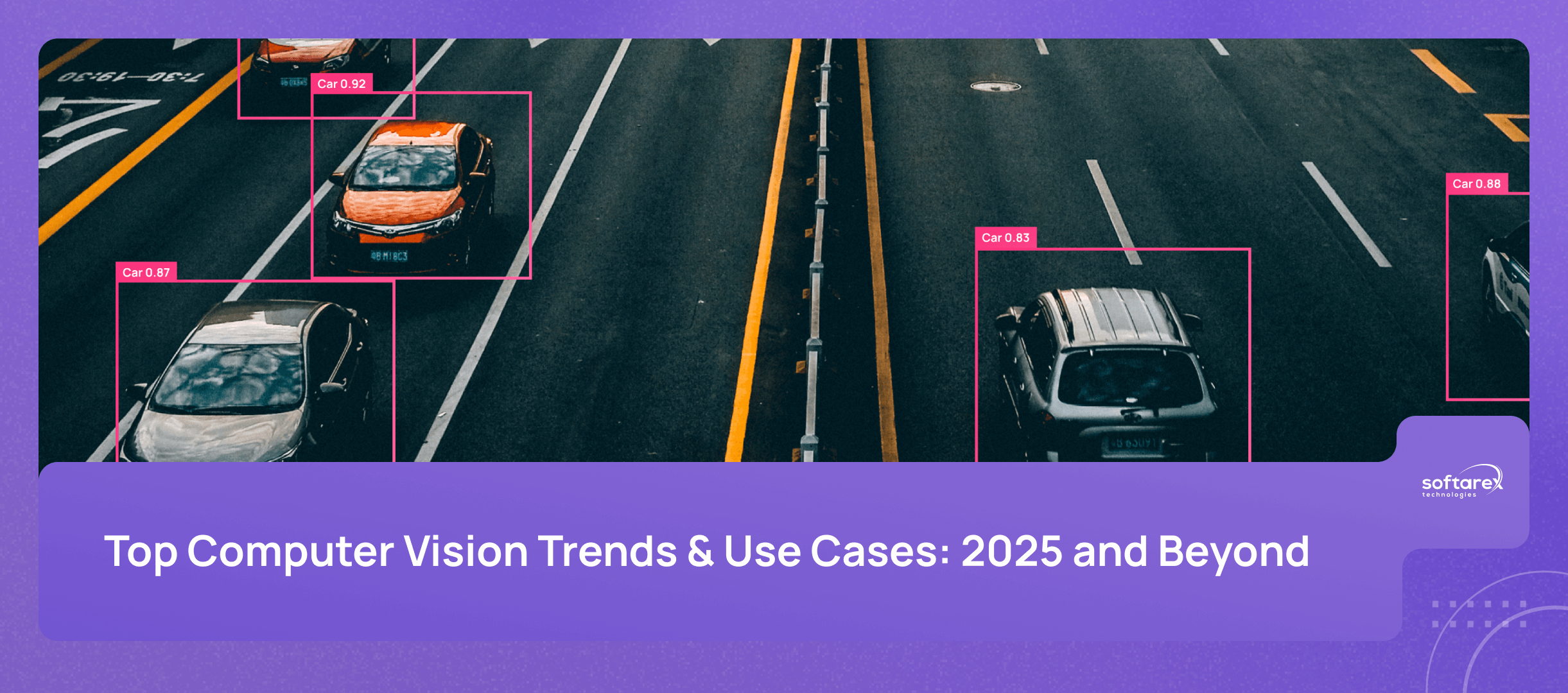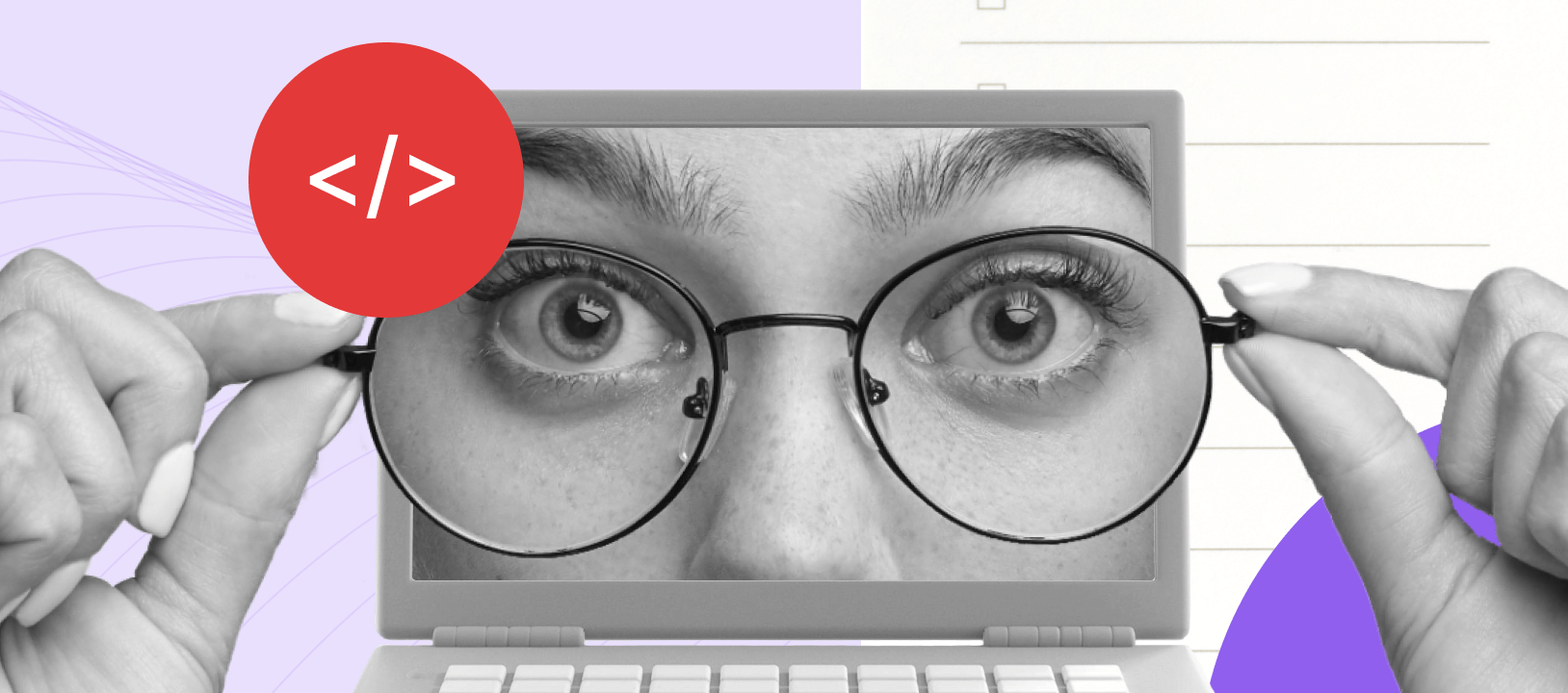Occupied enough as they are with fighting real diseases, physicians have to daily battle a less visible but not far less formidable enemy—red tape. On average, administrative tasks and paperwork steal 15.5 hours out of a 50-hour physician working week. That’s a terrible rip-off of valuable time they could’ve dedicated to patient care or used to take a well-needed breather. Fortunately, the new tool called AI Scribe can help physicians get some of that lost time back by automating the documentation process.
What Is AI Scribe and How Does It Work?
AI Scribe is a tool that assists physicians in capturing every important detail of doctor visits. The technology listens to patient encounters, records essential health information, and generates comprehensive SOAP notes for review and integration into the electronic health record (EHR). All the physician has to do is click ‘record’ on the computer, and the system will start doing its job.
The beauty of AI Scribe tools is their ability to separate the wheat from the chaff. They sift through casual chit-chat and extract only the most relevant health-related information, such as medical history, physical exam findings, treatment recommendations, and follow-up plans. These systems can also generate visit summaries for the physician to print or email to the patient, ensuring everyone is on the same page.
When the visit is over, it’s time for the doctor to step in. The physician reviews the notes, corrects any mistakes made by AI Scribe, and pastes encounter details into the EHR. Voila! The task, which usually takes around 6 hours a day, is done within just a few minutes!
Benefits of AI Scribe
AI Scribe offers physicians significant advantages that go beyond mere note-taking automation. Such tools can reduce the administrative burden on physicians, while positively affecting their workplace wellbeing. They also have the potential to improve the care experience by increasing the “dosage” of human touch during doctor visits. Additionally, it contributes to the quality of medical documentation. Let’s delve deeper into these benefits.
Reduced physician burnout
The Covid-19 pandemic may be over, but a different one—physician burnout—shows no sign of stopping. Today, 49 percent of doctors feel burned out, and the main reason for this professional fatigue, according to 62 percent of specialists, is excessive bureaucratic tasks.
The consequences of physician burnout are truly disastrous. Constant workplace exhaustion takes a high toll on mental well-being and can eventually lead to depression. Additionally, burnout can affect the quality of care. Fatigued doctors are 50 percent more likely to be involved in incidents harming patient safety and demonstrate low professionalism. Care providers experiencing depression feel more easily irritated with patients and less careful with notes.
Fortunately, AI Scribe tools can help turn this around. By automating note-taking and EHR data entry, they relieve physicians of the most time-consuming and energy-draining administrative work. This allows doctors to focus on patient care, avoid overtime, and improve work-life balance, thereby reducing stress levels and the risk of burnout.
Improved Doctor-Patient Communication
Another benefit of AI Scribe is that it allows physicians to be literally “all ears” during visits, which is statistically the most crucial aspect of a good patient experience. 71 percent of patients rate it as “extremely important”, and another 24 percent as “very important”.
AI Scribe shifts the focus of physician attention from the computer to the patient. By “outsourcing” note-taking, clinicians can concentrate solely on patient health concerns, making patients feel heard and valued. This also eliminates the burden of remembering every single important detail of the conversation. And this, in fact, can be quite mentally tiring if the visit lasts too long or the patient has multiple conditions.
The results of recent research on Scribe AI adoption have proven the positive impact of the new technology on the care experience. 81 percent of respondents claimed that their clinician wasn’t as distracted by the computer as during previous encounters. And 71 percent said they spent more time speaking with their physician.
Clinicians themselves have also come to appreciate the benefits of Scribe AI for doctor-patient communication. Some described the tool as “transformational” and “the biggest game changer.” Others acknowledged that using AI for note-taking added a personal touch to interactions, making them more meaningful and effective. “I even had a patient praise the fact that I could listen instead of type during the visit,” shared one physician.
More Accurate and Complete Notes
It’s hard to overstate the role of data in healthcare, the driving force behind every crucial physician decision—from diagnosis and treatment planning to hospitalization and surgical intervention. The more complete and accurate data a physician has, the higher the quality of care, which makes successful patient data collection extremely important.
Gladly, AI Scribe makes this once burdensome process more effective and error-free than ever before. And a recent study by The Kaiser Permanente Medical Group has proved it. A group of researchers assessed over 300,000 AI records of doctor-patient encounters for 10 key parameters, including unbiasedness, consistency, accuracy, and comprehensiveness. The transcripts scored a whopping average of 48 out of 50 possible points.
Despite these astonishing results, researchers have concluded that AI Scribe tools can’t fully replace physicians. Automatically generated notes require review and editing before being uploaded in the EHR. However, AI Scribe has never been meant as anything but a smart physician’s assistant. It’s obviously no substitute for human physicians because as any other similar technology it’s prone to mistakes and misinterpretation. Fortunately, AI is known for its ability to learn on the job and improve over time, lessening the amount of “post-production” work for physicians.
About Softarex
With 23 years of experience in software development and vast expertise in the healthcare domain, Softarex excels at transforming ideas into successful digital solutions.
Our approach is based on blending best industry practices with the latest technology trends—AI, Computer Vision, Machine Learning, and Predictive Analytics—to help your business achieve tangible results.
If you have a project in mind and are looking for a reliable partner to make it a reality, feel free to drop us a line.
Meanwhile, if you want more in-depth insights into how artificial intelligence is transforming healthcare delivery and pharmaceutical innovation, download our comprehensive eBook, The AI Revolution in Healthcare and Pharmaceuticals. This resource explores cutting-edge applications, real-world case studies, and future trends that are shaping the industry’s digital transformation.









